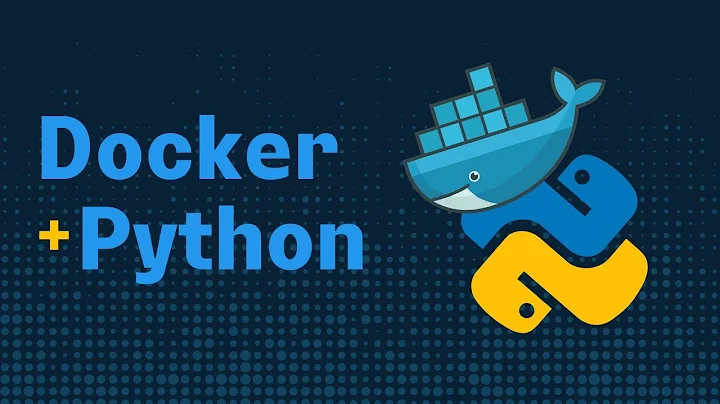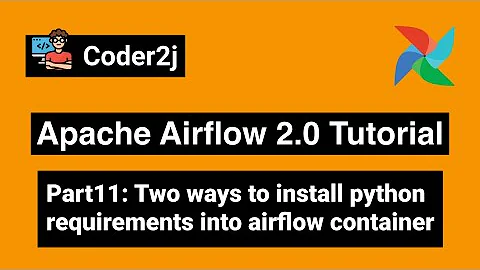How to install a python package with all the dependencies into a Docker image?
To answer the first question Where is the conda environment? we just need to execute in console $ docker my_containers_name ls /opt/conda.
Second question has two options:
-
We can open the containers console by executing the command
$ docker exec -it my_containers_name /bin/bashand install the package like a normal conda package
conda install --channel https://conda.anaconda.org/conda-forge folium -
We can modify the Dockerfile of the Docker image or create a new one extending the previous one. To create a new Dockerfile and add the lines
FROM jupyter/minimal-notebook USER jovyan RUN conda install --quiet --yes --channel https://conda.anaconda.org/conda-forge folium && conda clean -tipsyAnd build our new image. If we want to modify the original Dockerfile we must skip the first line.
I create my own Dockerfile by forking the original project.
Thanks warmoverflow and ShanShan for your comments
Related videos on Youtube
pax
Curious Mathematician with experience in Data Science & Analytics I'm leading the implementation of data driven platforms and products using Machine Learning, Big Data and Data Streaming technologies: Apache Spark, Cassandra, Hadoop, Kafka, Django, Flask, Docker, Kubernetes, scikit-learn, Tensorflow, Databricks. All this over AWS and Azure. Python and Javascript are my weapons of choice. I love to bring in creative and innovative client oriented solutions, aligned to team capacities, time to market, and costs optimization. I always approach challenges with a problem-solving mindset. I believe in measuring achievements through satisfaction of the client and the team.
Updated on July 09, 2022Comments
-
 pax almost 2 years
pax almost 2 yearsI'm working in Ubuntu 15.10 with the Docker container for Pyspark jupyter/pyspark-notebook. I need to install folium with all it's dependencies and run a Pyspark script into the container. I successfully installed Docker, pulled the image and run it with the command
docker run -d -p 8888:8888 -p 4040:4040 -v /home/$MYUSER/$MYPROJECT:/home/jovyan/work jupyter/pyspark-notebookThen, I execute the code example without any issues
import pyspark sc = pyspark.SparkContext('local[*]') # do something to prove it works rdd = sc.parallelize(range(1000)) rdd.takeSample(False, 5)I looked for the conda environment in
/opt/conda(as it says in the documentation) but there is no conda in my/optfolder. Then, I installed miniconda3 and folium with all the dependencies as a normal Python package (no Docker involved).It doesn't work. When I run the image and try to import the package with
import foliumit doesn't find the folium package:ImportErrorTraceback (most recent call last) <ipython-input-1-af6e4f19ef00> in <module>() ----> 1 import folium ImportError: No module named 'folium'So the problem can be reduced to two questions:
- Where is the container's conda?
- How can I install the Python package I need into the container?
-
Xiongbing Jin almost 8 yearsTo install python pacakges into Docker container, you can either create a new Dockerfile
FROM jupyter/pyspark-notebookand addconda install --quiet --yes 'folium', or just login to the containersudo docker exec -it container_id /bin/bashand install directly inside the container (first method preferred) -
Shanoor almost 8 yearsA Docker container is isolated, it doesn't see anything installed on your machine. You need a Dockerfile where you'll state the command to install folium, just like warmoverflow commented. Don't use the second method, a container reverts to its initial state when restarted, you lose any change made directly inside a running container.
-
 pax almost 8 yearsThanks warmoverflow and ShanShan for your comments!. I didn't understand that the container has its own file system. I did
pax almost 8 yearsThanks warmoverflow and ShanShan for your comments!. I didn't understand that the container has its own file system. I did$ docker my_containers_name ls /opt/condaand found the conda enviroment





